Book Talk: What I Read in May
Okay, it’s the first day of the new month, and somehow, I’m actually posting on time. Shocking, I know. Honestly, the only reason I ever keep up with these reviews is because I write them right after finishing a book—while my feelings (good or bad) are still fresh and my random annotations actually make sense.
Honestly, I’m not even sure what I’m saying right now. This is my fourth cup of coffee and I’m bulk-writing a few posts to have something ready for the next few weeks. Why? You’ll find out soon. There might be some changes happening on this blog over the summer, so let me know what you think if you notice anything different (like, good different please).
Anyway, before I jump into what I read in May, here’s a quick recap (or an intro, if you’re new around here). So, in case you’ve just landed here: I made a new year’s resolution in 2025 to read at least one book a week and post reviews for each one on this blog. It’s mostly just to keep myself accountable, but also to push myself to try new writers—even though I keep drifting back to old favorites.
I don’t have any hard rules for this project. I fell out of the habit of reading last year and realized how much I missed it—fiction, nonfiction, all of it. That’s how this monthly review series started.
If you’re interested in keeping up with my journey, you can check out my Goodreads account. I set it up back in March, and I’ve been sort of updating it every now and then.
You can check it out, or just keep up with all my book reviews here. So, with all that out of the way, here’s what I read in May.
May Breakdown: Book Recommendations
If you’ve read last month’s reading list, you probably know how annoyed I was with some of the writers (Elise Kova; for some reason, I keep calling for her Eliza) there. And so, I decided that I have the choice to completely ignore bad writing and plotting. Which is why this month I decided to play it safe with my book selection, and I only read books recommended by my friends.
I don’t have many friends. But they all read. And I am judging them.
So, for the month of April, in spite of all the unexpected curveballs in my life, I was able to read a grand total of eight books again.
Here’s a list of what I read in April:
- Mockingjay by Suzanne Collins
- A Good Girl’s Guide to Murder by Holly Jackson
- Julia Chan is Dead by Liann Zhang
- My Evil Mother by Margaret Atwood
- The Blind Assassin by Margaret Atwood
- Fourth Wing by Rebecca Yarros
Of course, even after these books, I wasn’t ready for the book I’ve finished this week. But we’ll rip it apart in the June reading list blog. Anyway, let’s go.
Book 1: Mockingjay
- Author: Suzanne Collins
- Genre: Dystopian Fiction
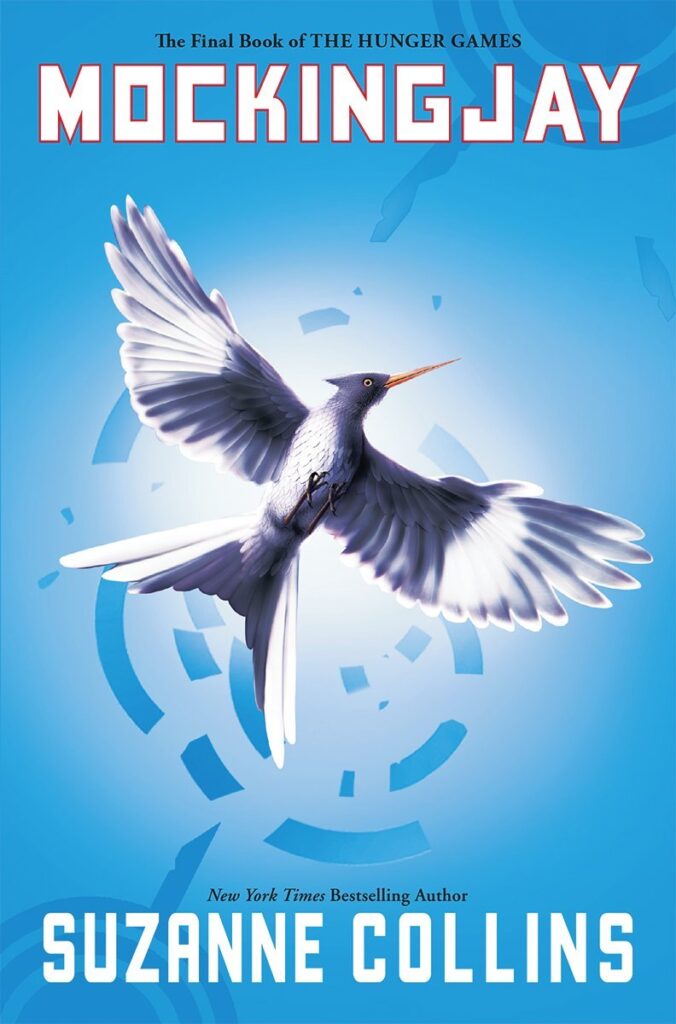
Why I Picked It Up
After finally making my way through The Hunger Games and Catching Fire over the past couple of months, I figured I might as well see how this whole revolution ends. I’ve somehow managed to avoid spoilers for years (a minor miracle), but everyone always said Mockingjay was the darkest and most divisive of the trilogy. Honestly, I wanted to see for myself if the hype—and the heartbreak—were justified.
Summary
Katniss Everdeen has survived two rounds in the arena, but now the games are over and the real war has begun. District 12 is gone, Peeta is missing, and Katniss is being asked to become the symbol of a rebellion she’s barely had time to process. There’s no more hiding—just politics, propaganda, trauma, and the impossible question of what it actually means to “win” a revolution.
What I Liked
Collins does not let up. This book is relentless, but in a way that feels earned. The stakes are genuinely high, and for once in YA, the cost of violence isn’t swept under the rug. Katniss is angry, traumatized, and often just trying to make it through the next hour—and I appreciated that the narrative didn’t shy away from her exhaustion.
The way propaganda and media manipulation are woven in is honestly brilliant (and terrifyingly relevant). Finnick, Johanna, even President Coin—every character gets a little more complicated, a little more morally gray.
Downsides
This is not a hopeful or comforting read. There were stretches where the bleakness really got to me, and Katniss’s numbness started to bleed into my own reading mood. There’s also a sense of distance—she’s reacting more than acting for much of the book, and sometimes it felt like I was just watching things unravel instead of living through it.
And, controversial opinion: I still don’t know how I feel about that ending. Necessary, maybe, but not exactly satisfying.
Final Thoughts & Who Should Read It
If you’ve made it this far in the series, you owe it to yourself to see it through. Mockingjay isn’t an easy read, but it’s an honest one—about grief, recovery, and the messiness of actual revolution.
If you want happy endings and easy answers, prepare to be disappointed. But if you appreciate stories that don’t flinch away from consequences, this one delivers.
Book 2: A Good Girl’s Guide to Murder
- Author: Holly Jackson
- Genre: Mystery, Thriller
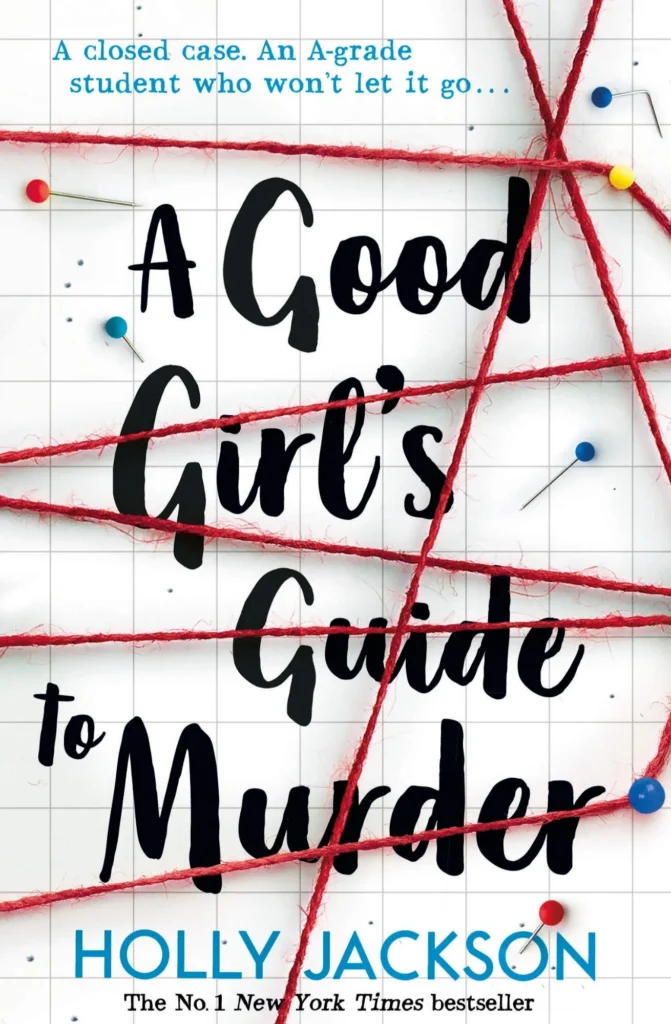
Why I Picked It Up
I was in the mood for something quick and addictive after a run of heavier reads. I kept seeing this one everywhere—TikTok, Goodreads, random “must-read YA mysteries” lists—and figured I’d see what all the fuss was about. Plus, I’m a sucker for a book with a podcast/dossier vibe, especially when there’s a “good girl” who’s actually kind of ruthless underneath.
Summary
Five years ago, schoolgirl Andie Bell was murdered, and everyone in town knows her boyfriend Sal did it—case closed. Except Pippa Fitz-Amobi isn’t buying it. For her senior project, she decides to investigate the case herself, peeling back layers of secrets in her supposedly perfect town. The deeper she digs, the more dangerous it gets—and the more it becomes clear that some people will do anything to keep the past buried.
What I Liked
This is one of those books you just fly through. The format—interviews, text messages, project logs—keeps things moving and adds a fresh angle to the traditional whodunit. Pippa is a genuinely clever protagonist; she’s methodical, a little obsessive, and not afraid to push boundaries (or break a few rules).
I loved the way the book doesn’t play it safe. The twists are genuinely surprising, and the sense of small-town claustrophobia is real. Holly Jackson knows how to keep the tension tight without resorting to over-the-top drama.
Downsides
Some parts do require a little suspension of disbelief—high schoolers running full-scale investigations with very little adult intervention is always a bit of a stretch. Also, the side characters sometimes blur together, and there’s a formulaic feel to some of the reveals.
If you read a lot of true crime or adult thrillers, you might find the resolution a bit neat. But for YA? It works.
Final Thoughts & Who Should Read It
If you love YA mysteries with sharp female leads, unreliable townsfolk, and twists that actually land, add this to your list. A Good Girl’s Guide to Murder is the kind of book you finish in one sitting—perfect for breaking a slump or binging on a lazy weekend.
It won’t change your life, but it’s very good at what it sets out to do.
Book 3: Julia Chan is Dead
- Author: Liann Zhang
- Genre: Contemporary Fiction, Mystery
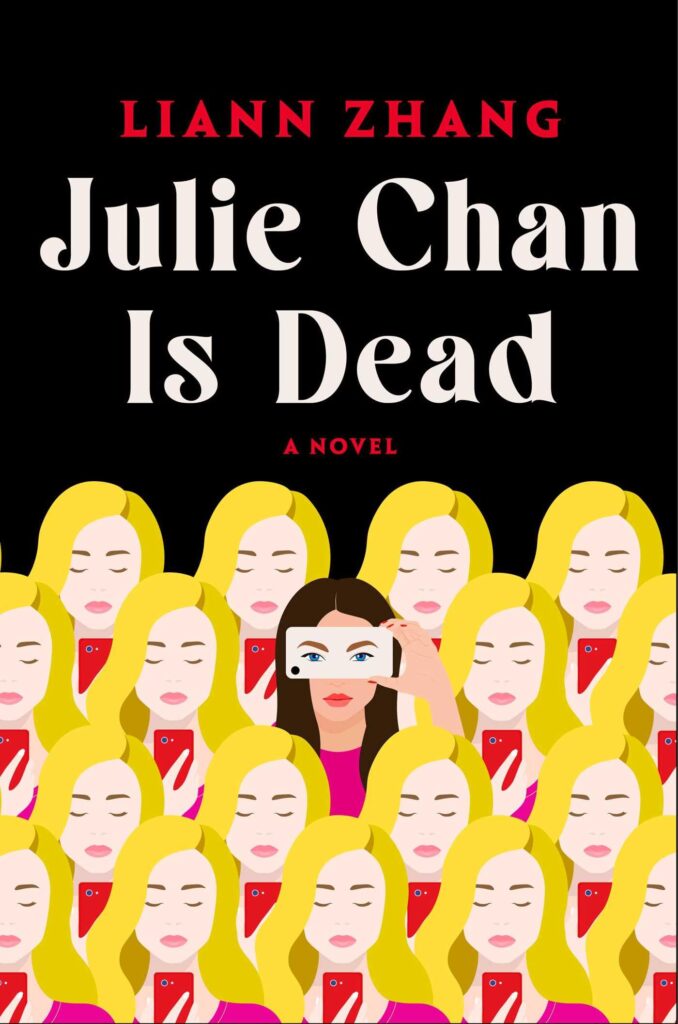
Why I Picked It Up
This was a total impulse pick. I saw it floating around on a few “underrated gems” lists and figured, why not? The title grabbed me—morbid, yes, but also oddly intriguing. Plus, I’ve been trying to read more new voices this year, especially outside my usual genres.
Also, there’s something about stories that play with the blurry lines between fact, rumor, and memory that always gets me.
Summary
Julia Chan is dead, but no one seems to know—or agree on—how it happened, who she really was, or if the truth even matters anymore. The novel unfolds through fragmented narratives: friends, classmates, internet sleuths, and anonymous online posts all take turns telling their version of Julia’s life (and death). As secrets are revealed and myths unravel, the story becomes less about Julia herself and more about the stories people tell—about others, and about themselves.
What I Liked
This book doesn’t follow a straightforward path, and I loved that. The shifting perspectives, the unreliable narrators, the little contradictions that pile up—it’s the literary equivalent of scrolling through true crime Reddit at 2AM.
Liann Zhang’s writing is sharp and modern, with moments that made me pause just to reread a line. There’s an undercurrent of loneliness here that feels very Gen Z, very now.
And honestly? The way it refuses to give “the answer” is refreshing. Some books want you to sit with the ambiguity, and this one does it really well.
Downsides
If you need closure or clear answers, you’re not going to get them. The fragmented style can be disorienting at first, and a few of the secondary voices aren’t as memorable as they could be.
Also, it’s not a plot-driven read. If you’re expecting a classic mystery, this might feel more like a character study that’s masquerading as a whodunit.
Final Thoughts & Who Should Read It
Read this if you like stories that are more about atmosphere than answers, and if you enjoy piecing together narratives from unreliable fragments. Julia Chan is Dead is for anyone who loves a little mystery but doesn’t mind loose threads—or who’s interested in the ways digital life reshapes our real-world tragedies.
It won’t be everyone’s cup of tea, but it left me thinking about it long after I finished. Sometimes, that’s better than a tidy resolution.
Book 4: My Evil Mother
- Author: Margaret Atwood
- Genre: Literary Fiction, Magical Realism
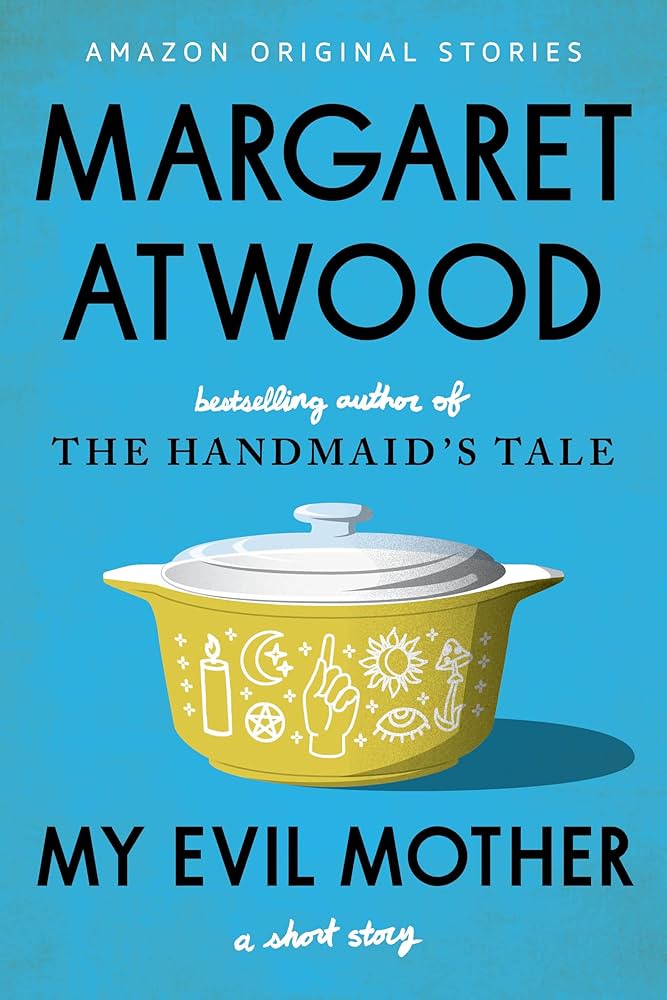
Why I Picked It Up
It’s Margaret Atwood, so obviously I was going to read it. I’ve been on an Atwood streak this year, and this short story kept popping up on recommendation lists. The title alone sold me—who doesn’t have a complicated relationship with their mother? And if that mother just happens to be maybe (probably?) a witch, even better.
Also, I needed something bite-sized after a string of full-length novels that left my brain feeling like soup.
Summary
Told in Atwood’s classic deadpan style, My Evil Mother follows a mother-daughter duo navigating suburban life with a touch of magic—or is it just a mother’s clever manipulation? The daughter grows up under the shadow of a mom who dispenses cryptic advice, hexes boyfriends, and claims supernatural power at every turn. The story blurs the line between mundane parental control and actual magic, asking: does it matter if it’s real, if it works?
What I Liked
Atwood’s writing is so sharp it cuts. She packs a lot into just a few pages—dry humor, family dynamics, coming-of-age nostalgia, and just enough strangeness to make you question what’s real.
The magic here isn’t about spells and wands; it’s about the power parents have over their kids (and the way we mythologize them). There’s something universal in that, but Atwood makes it feel fresh.
Also, the story is short, smart, and a little bit sad, but in that way where you’re almost grateful for the ache.
Downsides
It’s a short story, so if you’re looking for complex plots or deep character arcs, this isn’t it. It’s more a slice-of-life meditation than a full meal.
Some of the magical realism can feel ambiguous to the point of slippery—if you like your stories with concrete answers, you might finish this one wanting more.
Final Thoughts & Who Should Read It
My Evil Mother is perfect for fans of Atwood’s more playful side, or anyone who wants a quick read that still gives you plenty to think about. If you grew up with a mother who seemed to know everything—or who wielded her authority like a low-key superpower—this will hit home.
It’s a quick, thoughtful, and quietly magical story about mothers, daughters, and the complicated rituals we inherit. Read it on a commute, and you’ll still be thinking about it by dinner.
Book 5: The Blind Assassin
- Author: Margaret Atwood
- Genre: Historical Fiction, Mystery
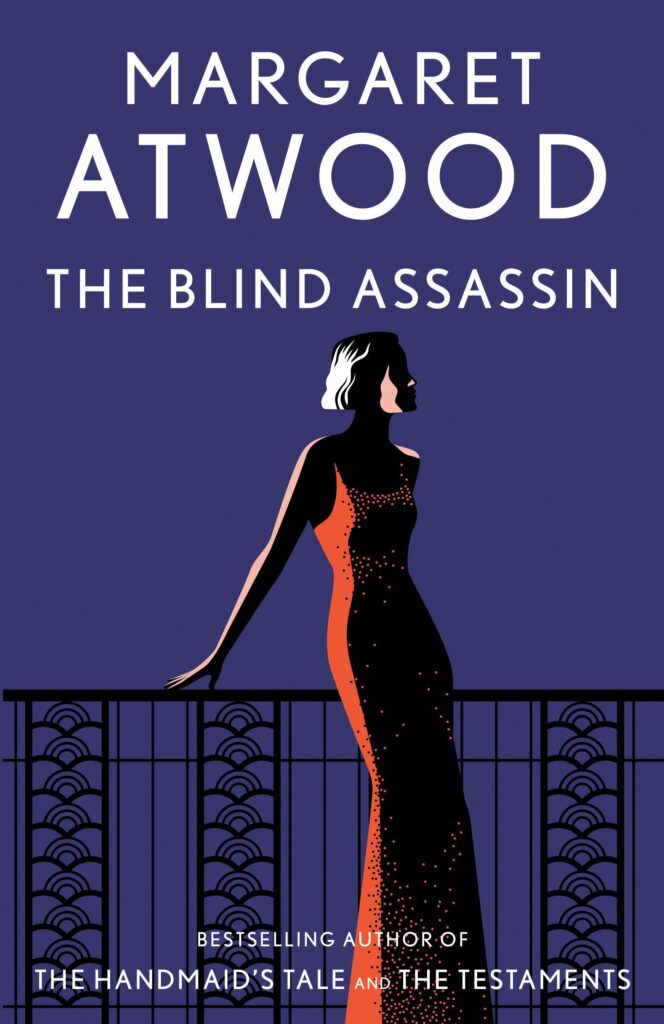
Why I Picked It Up
I’ll admit it: I’ve been unfair to Atwood for years. But since I’ve started making up for lost time, I couldn’t skip one of her most hyped novels. The Blind Assassin has been sitting on my shelf for ages, intimidating me with its size and reputation. This month felt like the right time to finally tackle it—mostly because I was craving something layered and unapologetically weird.
Also, everyone says it’s her masterpiece, so I had to see what all the fuss was about.
Summary
On the surface, The Blind Assassin is the story of Iris Chase, an aging woman reflecting on her tragic family history and the mysterious death of her sister, Laura. But it’s also a story-within-a-story—with science fiction, forbidden love, and unreliable narration braided through newspapers, memoirs, and a novel attributed to Laura.
As Iris sifts through old scandals, betrayals, and silences, the lines blur between what’s remembered, what’s invented, and what’s simply too painful to face. The result is a multi-layered puzzle about memory, power, and the secrets that shape us.
What I Liked
Atwood’s writing is, as always, next-level—rich, sly, and so controlled it’s almost scary. I loved the structure: the way stories are nested inside each other like Russian dolls, each revealing something new (or casting doubt on what you thought you knew).
The pacing is unhurried, but never dull. The sense of atmosphere—gothic, lush, and quietly foreboding—pulls you in and doesn’t let go.
And Iris herself is a quietly devastating narrator. She’s not out to be liked or forgiven, just understood. That honesty makes the heartbreak feel earned.
Downsides
This book is a commitment. It takes a while to get going, and if you’re impatient, the shifting timelines and interwoven narratives might be confusing or slow.
Also, there’s a lot of emotional bleakness. If you’re not in the mood for generational trauma, doomed women, and dark social commentary, you might find it a bit much.
But honestly? Once you let yourself sink in, it’s worth the effort.
Final Thoughts & Who Should Read It
The Blind Assassin is not a casual beach read. It’s for anyone who loves literary puzzles, unreliable narrators, and stories that reward patience and rereading. If you want a book that’s challenging in the best way—and leaves you feeling like you’ve lived multiple lives by the end—pick this up.
It’s heavy, strange, and quietly brutal. But if you stick with it, it’s unforgettable.
Book 6: Fourth Wing
- Author: Rebecca Yarros
- Genre: Fantasy, Romance
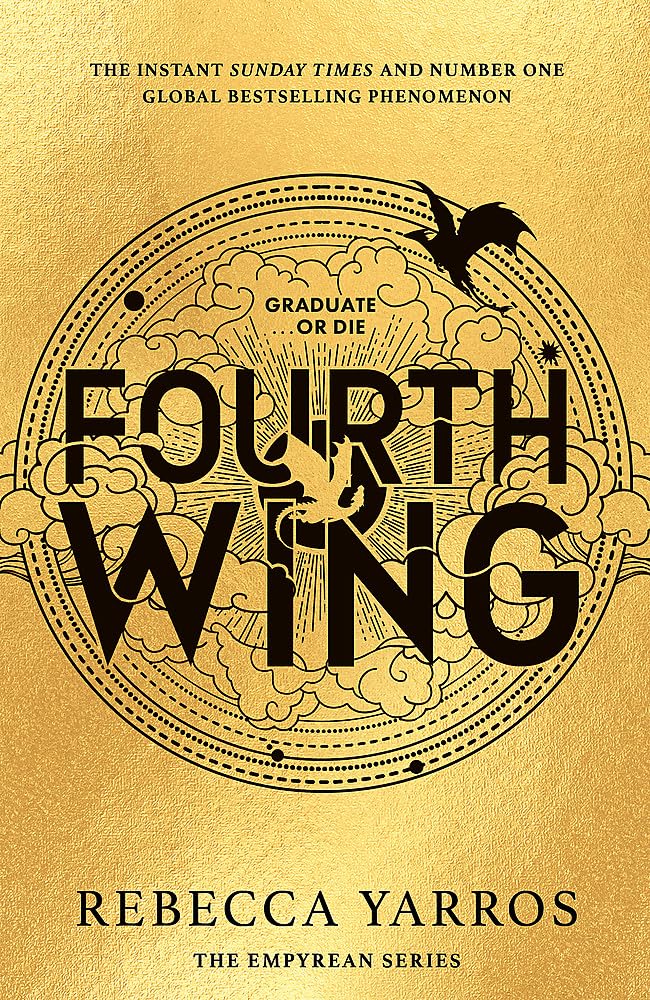
Why I Picked It Up
BookTok peer pressure. Seriously, if you’ve spent even five minutes in a bookstore or online this year, you’ve seen Fourth Wing everywhere—glowing reviews, dragon memes, people fighting over special editions. I wasn’t sure if it would live up to the hype, but I was in the mood for something escapist and dramatic.
Also, I have a soft spot for stories about underdogs thrown into dangerous worlds, and I’ll read almost anything with dragons. No shame.
Summary
Violet Sorrengail was supposed to live a quiet, academic life—until her mother shoves her into Basgiath War College, where the only way to survive is to bond with a dragon and make it through cutthroat, deadly training. Violet is smaller, weaker, and more bookish than the other cadets, but she’s not going down without a fight.
Between brutal tests, reluctant alliances, and a slow-burn romance with a guy who should probably come with a warning label, Violet has to decide if she’s willing to break the rules (and her own bones) to survive. Oh, and did I mention there are DRAGONS?
What I Liked
This book is ridiculously readable. The pacing is fast, the stakes feel real, and there’s no shortage of twists to keep you hooked. The worldbuilding is familiar but done with enough energy to feel fresh.
Violet is an easy protagonist to root for—vulnerable, clever, stubborn, and way out of her depth but never out of ideas. The supporting cast brings just enough chaos, and the romance brings the right level of tension.
And yes, the dragons are awesome. If you like found family, dangerous schools, and dramatic reveals, you’ll have a great time.
Downsides
Is it perfect? No. The writing can be a bit on-the-nose, and you can feel the “market-tested” vibes in some of the tropes and dialogue. A few plot twists are telegraphed a mile away, and if you read a lot of fantasy, you’ll recognize some well-worn tropes.
It’s also more romance-heavy than I expected, sometimes at the expense of character development or world detail. And fair warning: if you don’t vibe with the whole “special girl in a brutal school” formula, this probably won’t convert you.
Final Thoughts & Who Should Read It
Fourth Wing is the definition of a popcorn book—fun, fast, dramatic, and surprisingly addictive. If you want deep, literary fantasy, look elsewhere; if you want dragons, danger, and romantic tension you can practically smell through the pages, pick this up.
It’s not going to change your life, but it will remind you how much fun reading can be. And honestly? Sometimes that’s exactly what you need.
What I Read in May: Summary & Favourite (and Least Favorite) Book
This month’s reading list was a complete genre free-for-all—dragons, dystopia, literary trauma, murder podcasts, short story magic, and whatever you’d call the existential chaos of The Blind Assassin. Every book had its own mood, and honestly, I didn’t hate a single one. Even the ones that frustrated me left something interesting behind.
If I had to pick, The Blind Assassin takes it. It’s dense, weird, a little bit exhausting, and somehow exactly what I needed. I’ll probably be thinking about it (and occasionally side-eyeing my bookshelf) for months.
Probably Fourth Wing. Not because it was bad—it was fun, fast, and honestly did everything I hoped it would. But compared to the rest, it felt a little too on-the-nose, a little too market-perfect. Still, it delivered dragons and drama, which was exactly the brain break I needed.
And that’s a wrap on May! What did you read this month? Agree or disagree with my picks? Feel free to start a debate (or recommend me your latest obsession) in the comments.





One Comment
Rylthescry
Great selection!